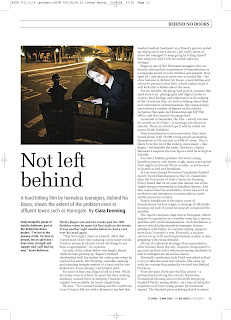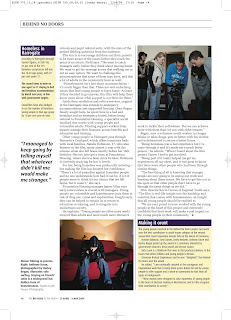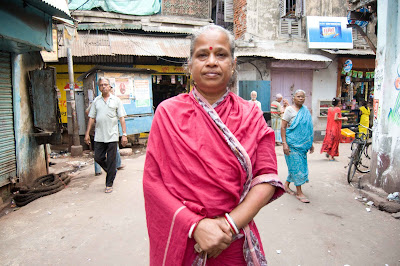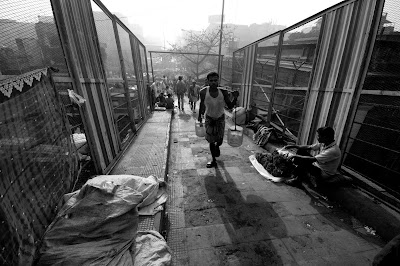Uncategorized
famous in latvia
gender survey
I’ve been asked by a friend to urge people to spare a moment of their time to fill in an anonymous gender survey being run by the campaign group 50m Missing.
The Indian group is working to raise awareness of a horrific gender bias that has developed in the country – where a historic cultural preference for boys is having a disastrous effect thanks to the development of ultrasound tests and selective abortions.
Indian law makes it illegal for parents to find out the gender of their unborn child, but rampant corruption means many bribe health workers and go ahead and abort. The result – when added to more longstanding problems like dowry murders and high maternal mortality rates – is an estimated 50m women missing from India’s 1bn-plus population. It’s an issue I’ve written about before.
The survey closes in one month and desperately needs more respondents. I’ve just filled it in in about one minute flat. It can be found here.
lateski
slices of life
You can so tell I’ve got work to do.
Instead of doing what I was meant to be doing – ie writing up two features – I’ve spent several hours this afternoon making a rather pointless slideshow of some India pictures. Ho hum…
Music is Butterflies by Talvin Singh
red light #2
This is the story of Basanti, a former sex worker from the Rambagan district, north Kolkata. A mother-of-three, now 50, she was trafficked into the area at 18 by two women from her West Bengal village 200km away.
It’s a familiar story that continues to play out in impoverished communities across Asia, Eastern Europe and Africa to this day.
Basanti told me: “I thought I’d get a job cleaning houses, but she took me to Sonagachi (Kolkata’s biggest red light area). I kicked up a ruckus because I didn’t want to stay there and didn’t want to be in the profession. But she took me here to Rambagan and sold me.”
According to Basanti, that woman and her sister, who was based in Kolkata, trafficked many rural girls from her area into the city’s sex trade. Once there, they were bought by pimps and forced to see many clients a day. If they fell sick the cost of treatment was added on, as was food and shelter.
Basanti worked as a prostitute until her late 30s but now works as a domestic help, cleaning two houses every day for 800 rupees a month (about £10). Her earnings from prostitution helped her get her four younger sisters married off, but her lifestyle brought great shame on the family.
Neither of her two daughters are sex workers, something she is thankful about. It’s a difficult life, she admits – being used and abused by clients and expected to provide sexual favours for landlords, policemen and brothel owners.
And the trafficker, I asked? “She died in an accident, when the stove she was cooking on burst. Her sister also died of cholera.” Karma you could say.
And how does Basanti feel about what happened to her now? She shrugs, her eyes devoid of emotion: “It was my bad luck, my fate”.
red light #1
While I was in Kolkata I spent an evening in Rambagan, one of the city’s 27 red-light districts, and home to something like 750 sex workers. I wasn’t allowed to photograph on the streets – it’s an incredibly edgy area – but spent time visiting some of the education centres that have been set up to protect the local children, who are at risk from punters and traffickers.
One of the issues I was interested in talking about with outreach workers was trafficking. I had heard that in some areas one of the main protection issues at the moment is fake marriages – and had already tried very hard to set up interviews with women who had been through this for a feature. I had been repeatedly turned down, and told the issue was too sensitive.
I didn’t get my survivors but did manage to find out a bit more about what is happening.
Veena Lakhumalani, director of local NGO Cini Asha, told me that in rural areas of West Bengal, men from outside the community are offering to marry pretty girls from poor families without a dowry or big marriage ceremony.
Then the girls then disappear, often trafficked into brothels and forced into prostitution. Even once liberated, the issue of family honour means a victim – now seen as impure – is unlikley to be taken back by her family.
Lakhumalani warns that traffickers are not only taking advantage of people’s naivity – but are also exploiting the absence of proper marriage registration. “One guy can get married 20 times and doesn’t need a piece of paper to prove anything,” she said. “This is something that needs to be changed.”
dark days for the media
I went to a meeting last night to discuss plans by Guardian Media Group to halve the number of journalists working at the Manchester Evening News, which it owns, and close all the weekly paper offices in the region.
MEN Media’s owners say their plans to force through 39 redundancies (there are 82 staff) on the daily and the same number on the weekies are non-negotiable and in response to difficult trading conditions – namely the ongoing shrinkage of the print media, exacerbated by the recession.
They claim this is an essential move if they are to safeguard the survival of the Guardian, the UK’s supposed liberal newspaper.
Now I am a big fan of the Guardian. I write for it on occasions and would like to do so more. I read it and its Sunday sister-paper The Observer more than any other title and always dreamed of working on their staff. I believe there’s a need for a liberal voice in our media, which is dominated by hysterical right-wing rags.
But I’m with my former colleagues at the Manchester Evening News in their fight against the plundering of this city’s media, of which the newspaper section is run pretty much as a GMG monopoly.
For years the MEN has propped up the Guardian, making large profits for the company and still being subjected to job cuts…whatever happens the regionals division will end this year in profit.
This latest round, if allowed to go ahead, would in my view be the death knell for a regional paper which – like most others – is already struggling to cover enough serious local news.
There is too much reliance on press releases and agency copy and frustration among reporters that they don’t have the time to cover things that require more digging, and that important stories often don’t get the showing they deserve. It was partly this which led me to stop working there part-time last year.
To me, there is a deeper crisis is all this, one that dwarfs even the loss of 80-odd jobs. Many would doubtless disagree with me about the value of the regional media – and given the slide over recent years it’s perhaps hardly surprising – but I am profoundly worried by what this represents for local democracy, the fight against corruption, justice and community life.
I have a big ideological problem with the idea that big companies should be making profit out of news because cutting costs to maintain the bottom line will only ever result in poorer quality…you just get the vicious cycle of falling sales, drops in advertising and job cuts that we are experiencing now.
Tesco apparently looks to make 8p profit out of every £1 spent in store. Johnston Press, which owns many regional papers including the Yorkshire Post – currently going through a similar crisis to the MEN – aims to make 40p in the £1, and I expect other media owners are similar. It just isn’t sustainable.
On a personal level I wonder whether there is a real future working in the media. My income has dropped by more than a quarter in the past year, from quite a low base. It’s insecure enough being freelance in any industry but the media is a disaster at the moment.
But on the other hand, I believe in what I do and enjoy it 90% of the time. It gives me huge satisfaction when communities or individuals I have written about get in touch to say I’ve got it right. When the powers that be complain, it can be a pleasing sign that we’ve hit a nerve.
People will always want news and journalism, I hope, but it’s an unsettling time at the moment.
abridge
green piece
I’ve had a couple of pieces published in the Guardian newspaper today, in a special supplement about green housing.
The case study is here










